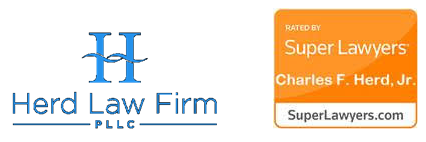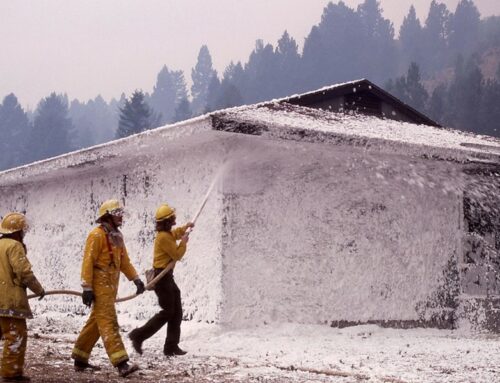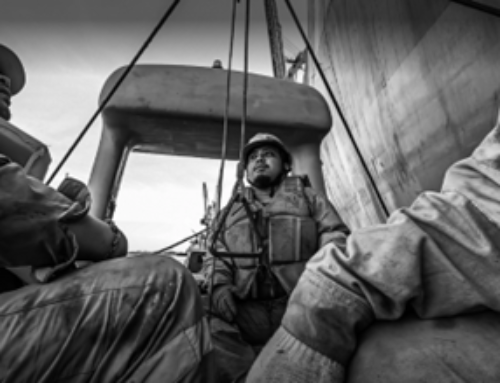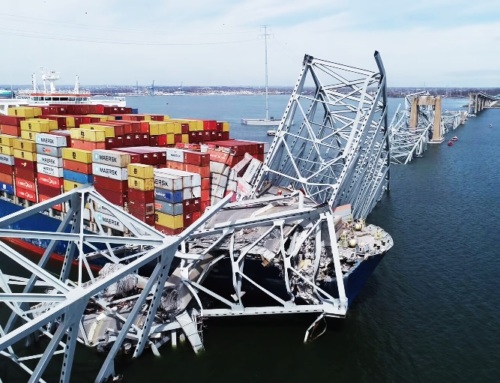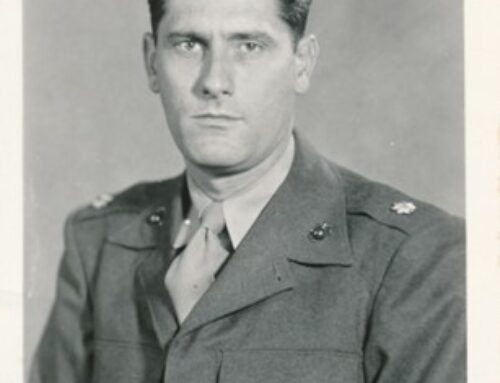NTSB Conclusion: Insufficient Communication and Inaccurate Tow Size
Results in Fatal Collision
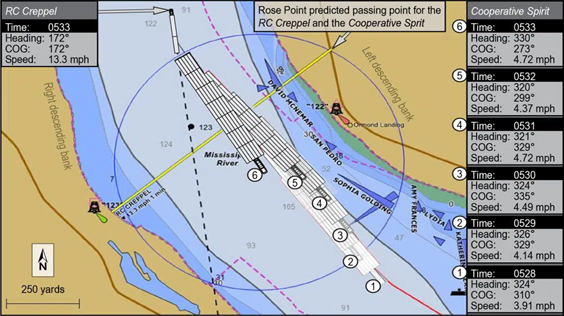 (Source: NTSB.gov)
(Source: NTSB.gov)
Miscommunication between pilots and inaccurate tow size information led to a fatal collision between two towing vessels in the Lower Mississippi River near Destrehan, Louisiana, according to a National Transportation Safety Board (NTSB) Marine Accident Brief released late August. The brief details the NTSB’s investigation of the Jan. 26, 2020, collision of the towing vessels COOPERATIVE SPIRIT and RC CREPPEL.
The collision resulted in an estimated $3M in property damage to three vessels and 11 barges. The RC CREPPEL was not recovered, capsizing during the collision and losing 3 of its 4 crewmembers, while releasing 8,000 gallons of diesel into the river and sulfuric acid fumes into the atmosphere.
In the report, the NTSB determined the probable cause of the collision of the COOPERATIVE SPIRIT and RC CREPPEL was the two pilots’ insufficient radio communication before meeting in a bend and not broadcasting accurate Automatic Identification System (AIS) information regarding tow size. Typically, a radio call to the other vessel would be made to help pilots determine movements and expectations (for example, whether to pass on “one whistle” or “two whistle”, whether to follow the “point-bend rule”, or other arrangements), but no call was made. This suggested that neither pilot was aware of the impending collision.
“When meeting or overtaking a vessel in a bend, especially where high-water conditions can increase the risk of a collision, early and effective communication is critical to ensuring a successful meeting,” the report said. “The use of very high frequency radio can help to dispel assumptions and provide bridge teams and towing vessel operators with the information needed to better assess each vessel’s intentions.”
Also, because neither the RC CREPPEL nor the COOPERATIVE SPIRIT correctly broadcasted the total overall length of the vessels and their tows to other AIS users, such that neither vessel had accurate data about the other’s dimensions. The report further emphasized importance of ensuring that vessels engaged in towing operations broadcast accurate AIS information regarding tow size, stating “The overall dimensions of a vessel and its tow may change significantly with each transit. For vessels towing ahead or alongside, the dimensions in AIS should reflect the overall rectangular area of the vessel and its tow… Consistently entering the complete dimensions of a tow configuration into AIS for each transit helps to alleviate possible misinterpretation and thus enhances the situational awareness of all waterway users.”
Though no addition safety recommendations were issued as a result of this investigation, in 2016 the NTSB issued Safety Recommendation M-16-15 to the U.S. Coast Guard, the Radio Technical Commission, and the American Waterways Operators, to “work with the Radio Technical Commission for Maritime Services and the American Waterways Operators to modify regulations, procedures, and equipment standards, as necessary, to ensure that vessels engaged in towing operations broadcast accurate automatic identification system information regarding tow size and tow configuration as well as vessel size.” These safety recommendations all serve to help save lives and prevent maritime tragedies.
The above is a summary of one or more news stories reviewed by the author of this article. It may contain comments or views of the author only.
If you or another mariner has been hurt or damaged as a result of poor navigation or unfit equipment aboard a maritime vessel, we at the Herd Law Firm would be pleased to speak with you, to see if we may be able to help.
NTSB Incident Brief: https://www.ntsb.gov/investigations/AccidentReports/Reports/MAB2116.pdf

